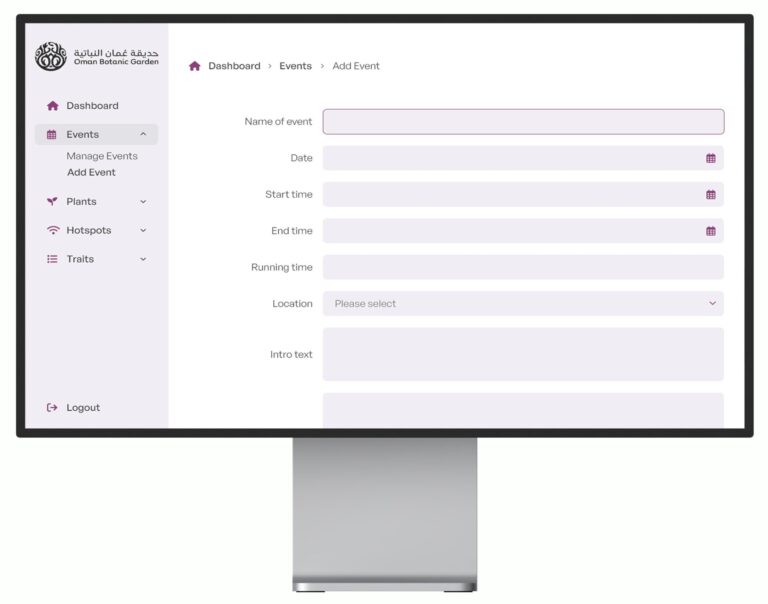The end of another year, so prepare for another barrage of “trends for next year” type blog posts. But they are very interesting to look back on in years to come, to see how right we were!
Web trends for 2024
The end of another year, so prepare for another barrage of "trends for next year" type blog posts. But they are very interesting to look back on in years to come, to see how right we were! So what does 2024 potentially have in store for the web? And…

So what does 2024 potentially have in store for the web? And for people working on the web? Here are a few of our suggestions…
More use of AI
The biggy – more use of AI. We’re expecting lots of people to want to start using it, but to not really have a plan initially – just to be looking for ways to streamline processes or increase efficiencies within their organisation.
We’ve been using AI and machine learning for several years now (the thumbnail for this post was generated by MidJourney) – starting probably with image recognition and auto keyword tagging back in around 2016. Now a days we’re using it to speed up coding (from all our tests it can’t replace a developer yet but it can assist a developer who knows what they’re doing) and generate content, both written and image based.
Another big project we’re working on at the moment for a client is using AI to crunch vast amounts of data (not personal data, our client isn’t those people) and predict trends – this sort of insight will be a game changer for organisations who want to be ahead of the curve, or want to sell that insight to the highest bidder.
The rise of the SSO
2022 and 2023 saw more and more organisations switching from their own bespoke solutions to using “off the shelf” software-as-a-service type offerings. It’s a trend that started in earnest when people quickly needed new tools which didn’t cost the earth to get different services up and running when the pandemic hit.
So what we’re seeing more of lately, is people now needing to tie all these different services together. Sure, SSO (single sign on) is by no means a new thing, it’s been around in one way or another since the late 90s. But whereas it’s traditionally been the remit of bigger organisations, now companies and charities of all shapes and sizes are needing to consider how they tie their various bits of software together for a smooth user experience. We’re working on 3 SSOs at the moment.
Cost effective web development
This has been a big part of 2023 and I don’t see it going anywhere anytime soon. Cost is playing a massive role in whether projects go ahead, and that will continue into 2024. Early next year we’ll be publishing a big report on how you can save costs on your web development projects, so do share our newsletter sign up form with anyone you know who might want that.
Numbers numbers numbers
View much tied to cost saving, along with the maturing of traditional Marketers now moving into leadership roles and needing to understand ROI all the more, we’re seeing various organisations make a big shift towards detailed reporting to enable a better understanding of what’s working and what’s not, on a more granular level than ever before.
Whether it’s event tracking in Google Analytics so that you know which button is proving most popular on your home page hero, or testing the results of different ad campaigns, collecting and analysing metrics is going to be more and more important going forwards. This then allows you to make wiser decisions about where to spend every penny of budget.
Generalist web skills
When we started 18a over 16 years ago, as someone building websites you pretty much needed to do it all – you needed to be able to design, code, understand hosting, be proficient with SEO and have a great eye for UX. Yeah there have always been the techies who couldn’t really lend their hand to the pretty stuff but still 100% had a place at the table, but overall, to run a successful web agency you needed to be a good all-rounder. Or, as is now the phrase, Generalist.
However over the years, more and more micro-disciplines have been developed and roles increasingly called for very narrow specialisms. And this made sense – coding isn’t for everyone, but the Internet is massive so it needs a lot of people to work on it, and having different areas of expertise allowed more people to enter the arena and fill the jobs. This requirement would have been lead by the big boys such as Meta and Google who needed lots of hands on deck, and then filtered down into agencies who didn’t have the inhouse knowledge to comfortably offer technical development but wanted to be able to offer design and UX services.
Fast forward to 2023 and Meta have made tens of thousands of people redundant. Meanwhile every day we’re receiving emails from recruitment reps about needing to place specialist web folk who have been let go. And that’s lead to me reading articles about the rise again of the “Generalist”. Now, this is a word that does have connotations of not really being a master of anything, which is very unfair because a good Generalist is actually, I think, an incredibly useful person to know. So often I come across people who know their narrow area thoroughly, but when they’re tasked with something, they try to approach that task or fix that problem from within their skillset – and that might not be the right skillset for the job. Only know JavaScript? You’ll try and fix it with JavaScript. Only know WordPress? You’ll propose WordPress. Can’t code? You’ll try and find something off the shelf, to fulfill some of the requirements. An experienced Generalist can be just as skilled as anyone in a specific role, but have the skills to look at the broader picture and truly identify the best solution. They’re basically an expert in lots of areas rather than just one. Of course you can find “Generalists” who are quite top level – they have a basic overview understanding of lots of things and so can’t really go very deep with anything useful – but a true Generalist – the type I’m talking about – will help you in countless ways, and save you money on bouncing between lots of different people who need to get up to speed and try and shoe horn your query or issue into their specialism. If you are looking for a great Web Generalist, get in touch.
Rebrand, don’t rebuild
Web developers and agencies would generally prefer to build a new website than work on an existing one. For a few reasons:
1) It’s not much fun trying to untangle the mess of someone else’s code – or even if it’s not a mess there can be years of work gone into it which it can be hard to pick up or know the context for. Web sites are built by decision after decision and coming to one 2 or 3 years down the line can be a lot to get your head around.
2) There’s generally more profit to be made on a big new web project than on some changes.
3) If a client is looking to work with a new agency or developer, it often means something went wrong with the site or the previous relationship. So that’s a daunting mantle to take over incase the problems with the site start to be regarded as the fault of the new agency. No one wants to be tarred with that brush.
Having said that, we do inherit a lot of websites and take them from strength to strength, as we’ve done this year with Gingerbread and Jericho Writers, who have both got great new looks thanks to our team. Meanwhile we’ve looked after Cosy Club and The Lounges for 4 years now after inheriting them from a design agency, adding features and maintaining the existing frameworks. Keeping an old site going, or completely revamping it to look new, can be entirely possible and a much cheaper option to starting again, so we expect to see more people pushing their agencies for this rather than rebuilds.
Round up for 2024
All of the above do have a general theme running through them – cost saving. And I honestly put this list together without that theme in mind, and then realised how everyone is being steered by the need to watch the pennies at the moment.
If you would like a hand with planning your road map for 2024, please do get in touch and we can help you put together a pragmatic, cost effective plan to move your website forward next year.


